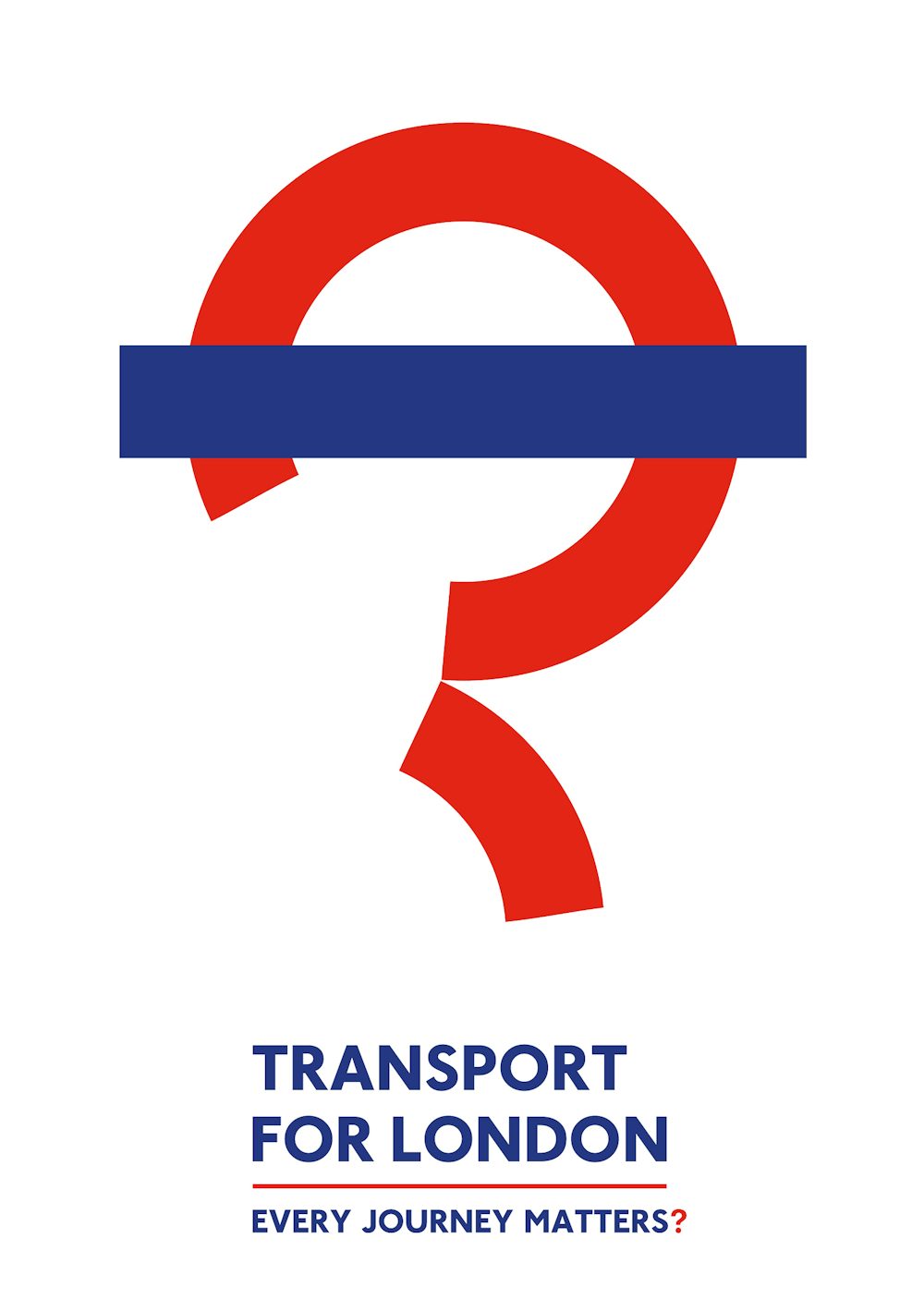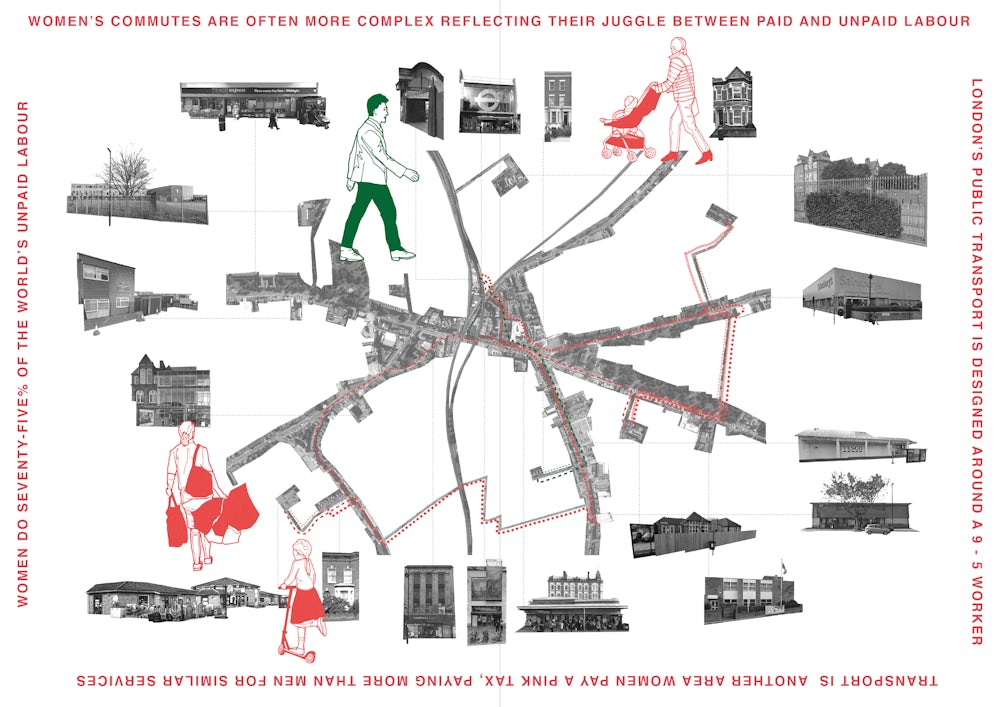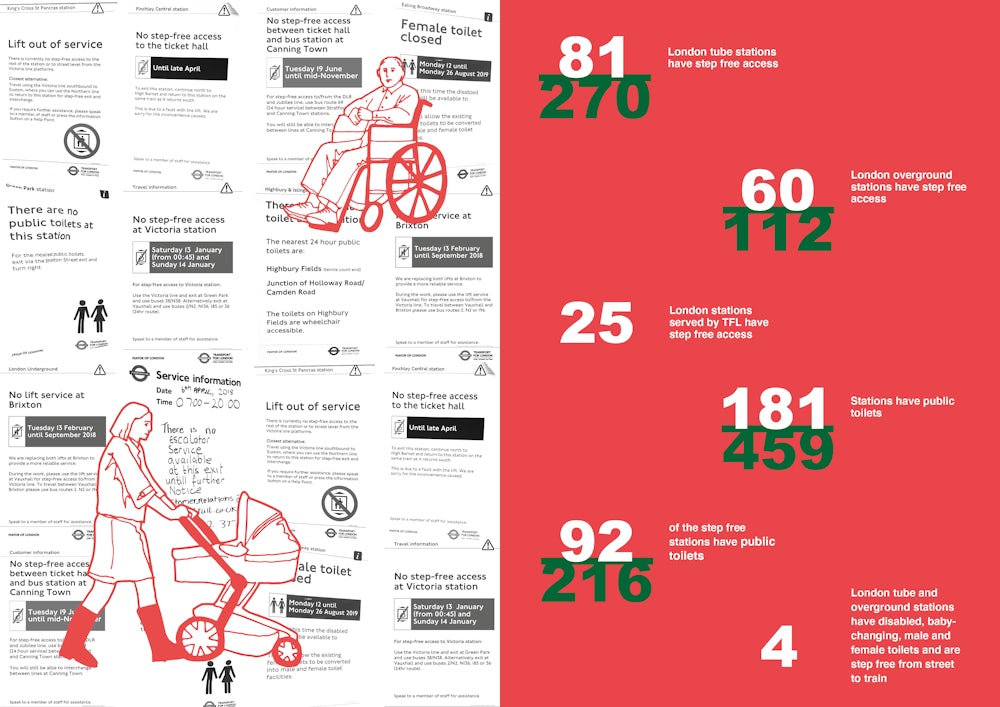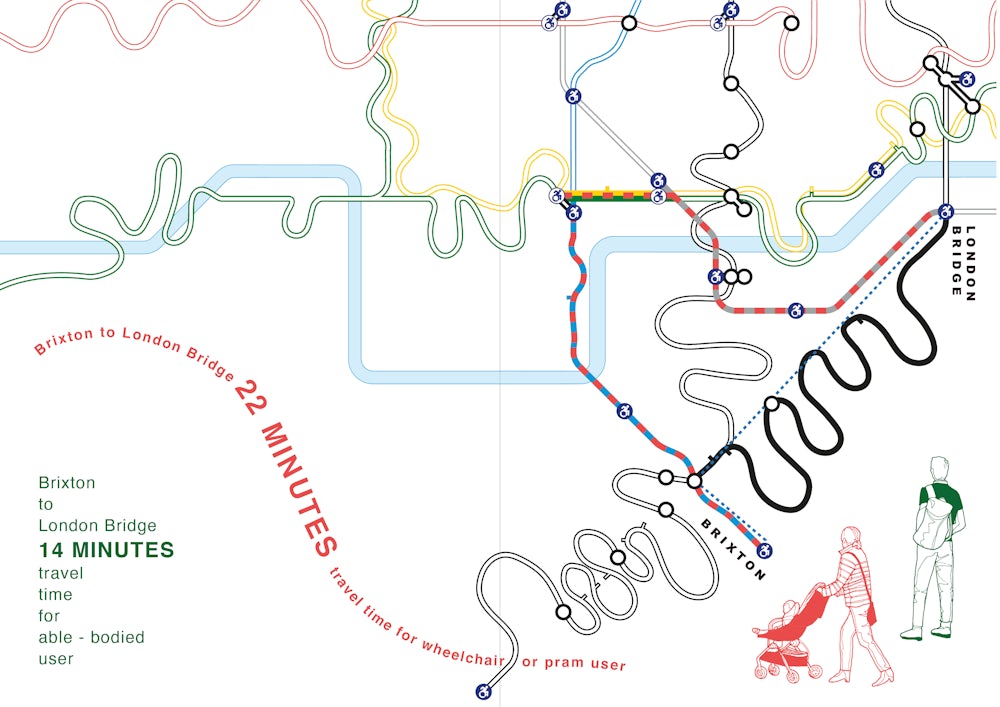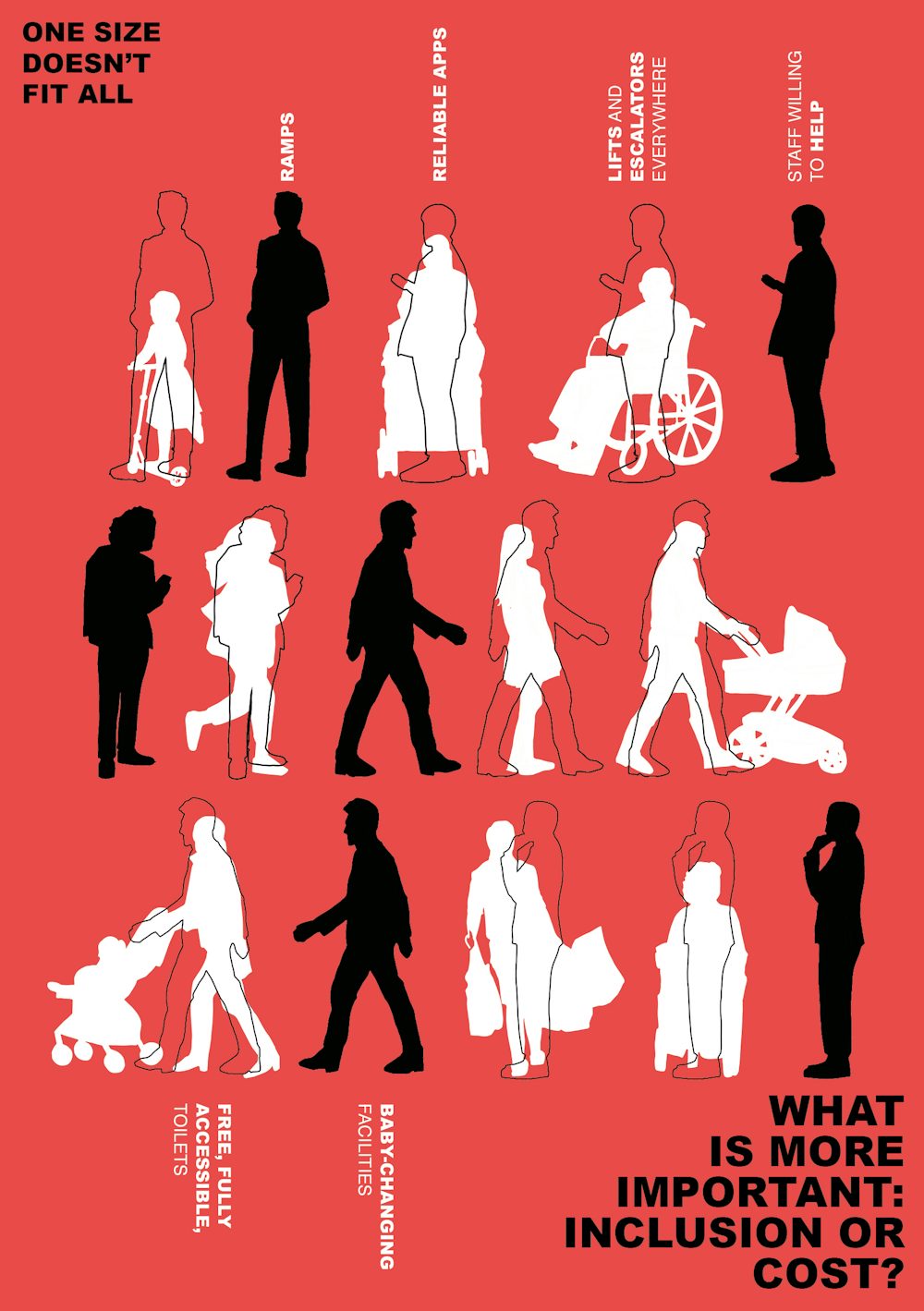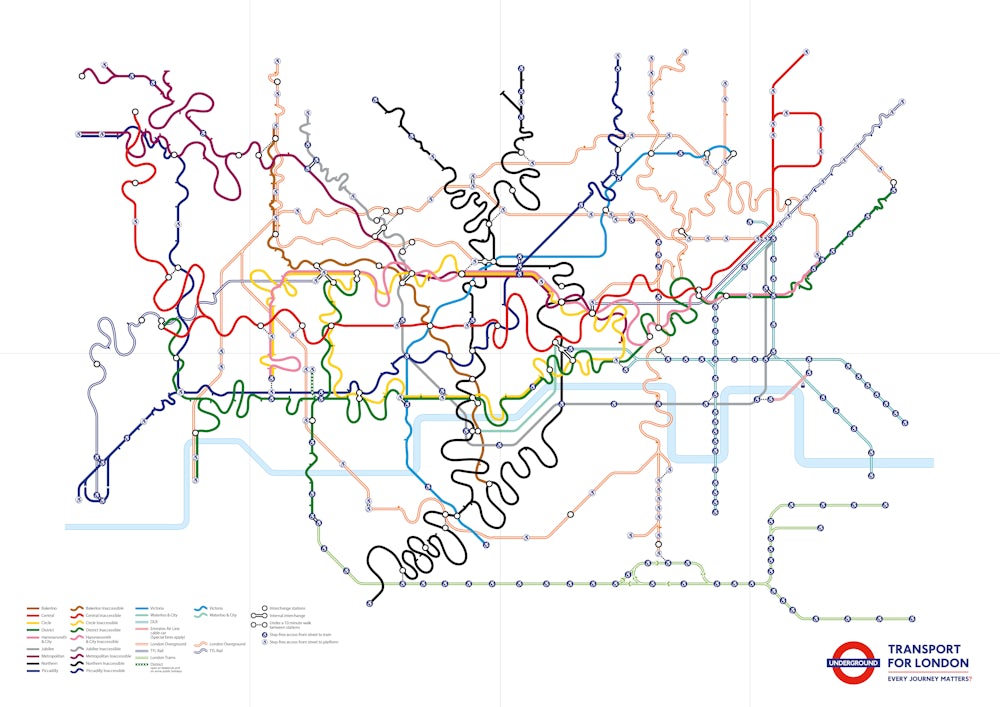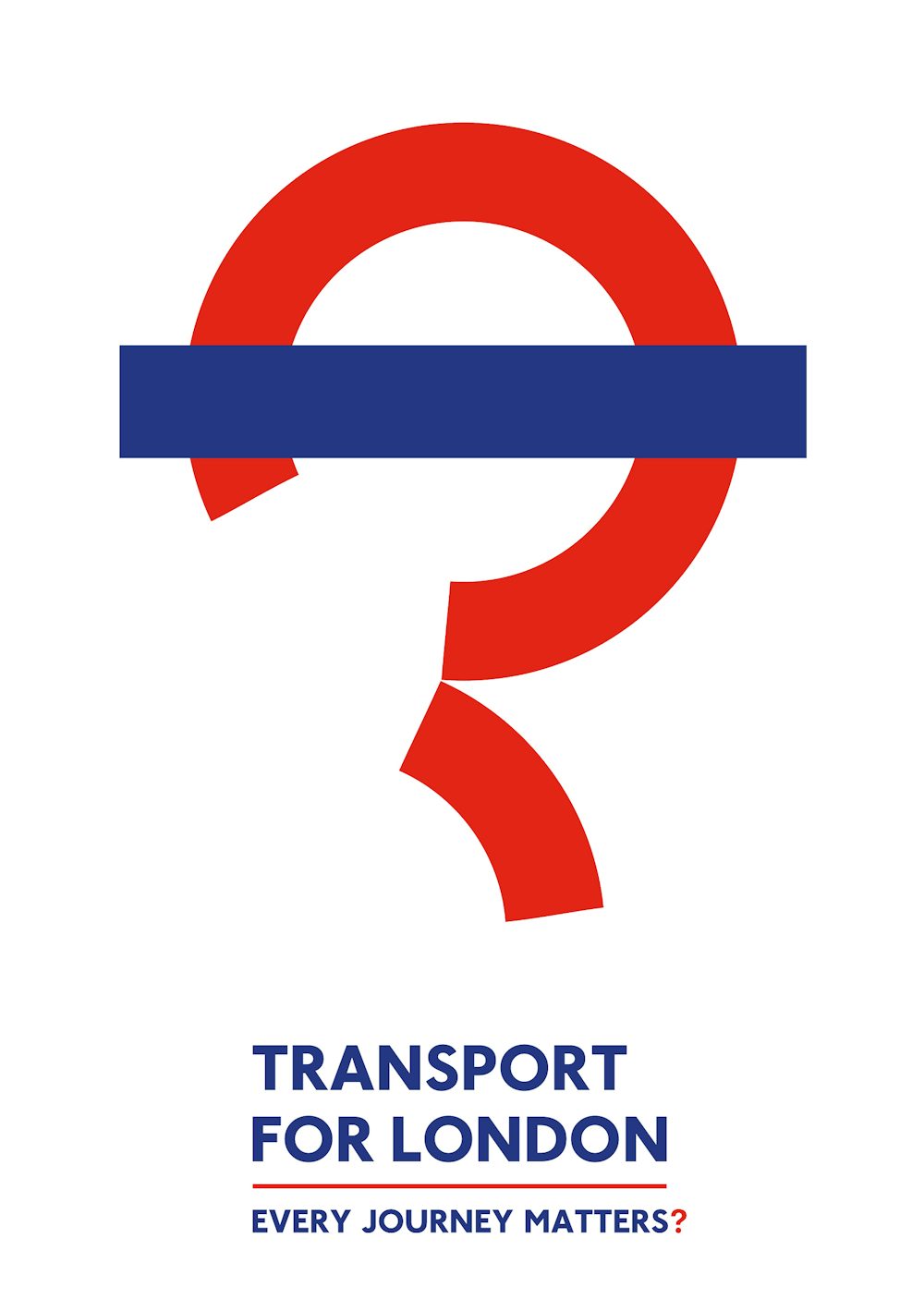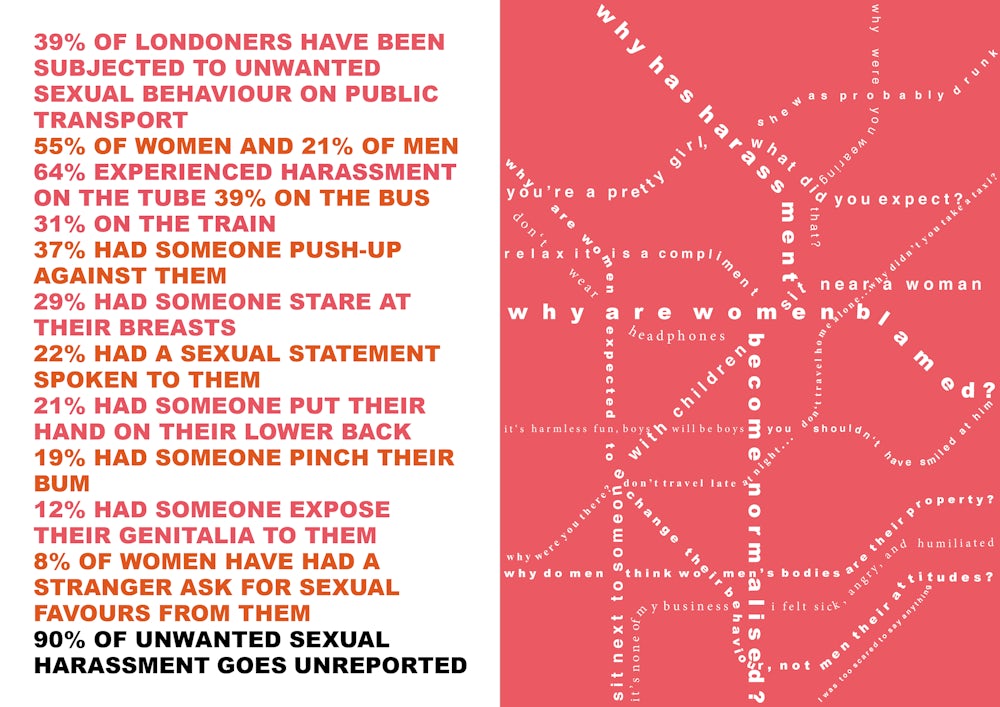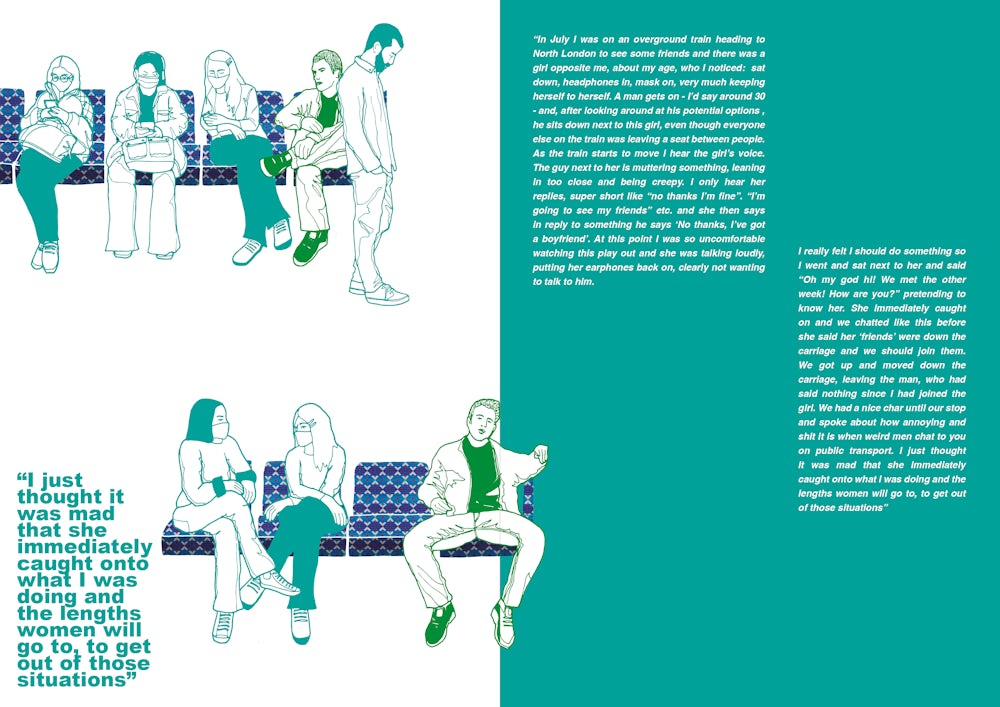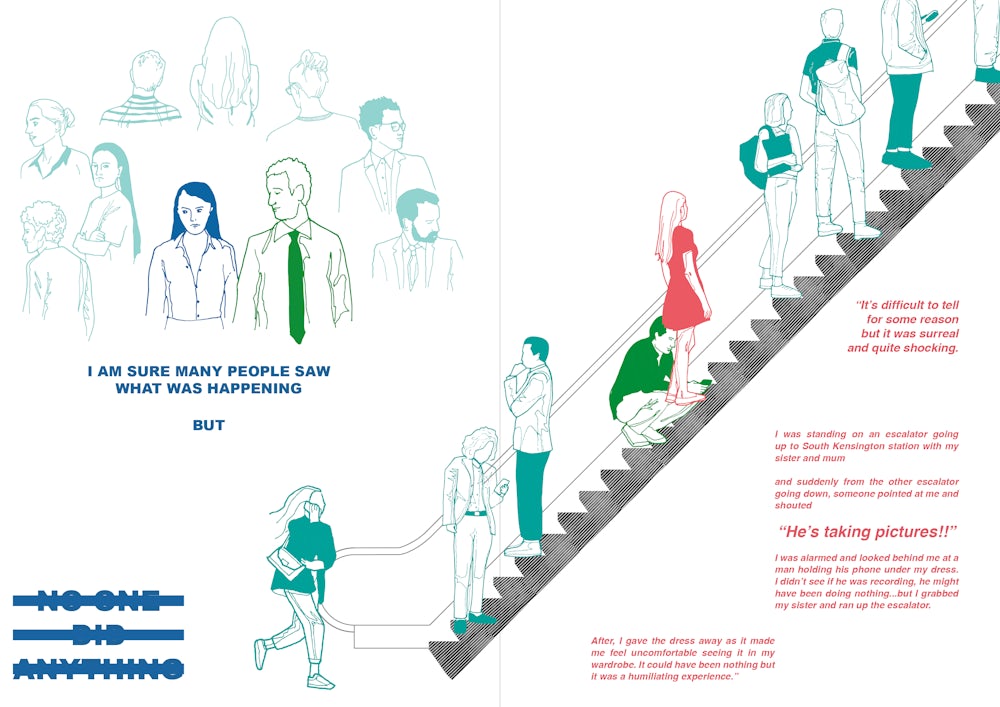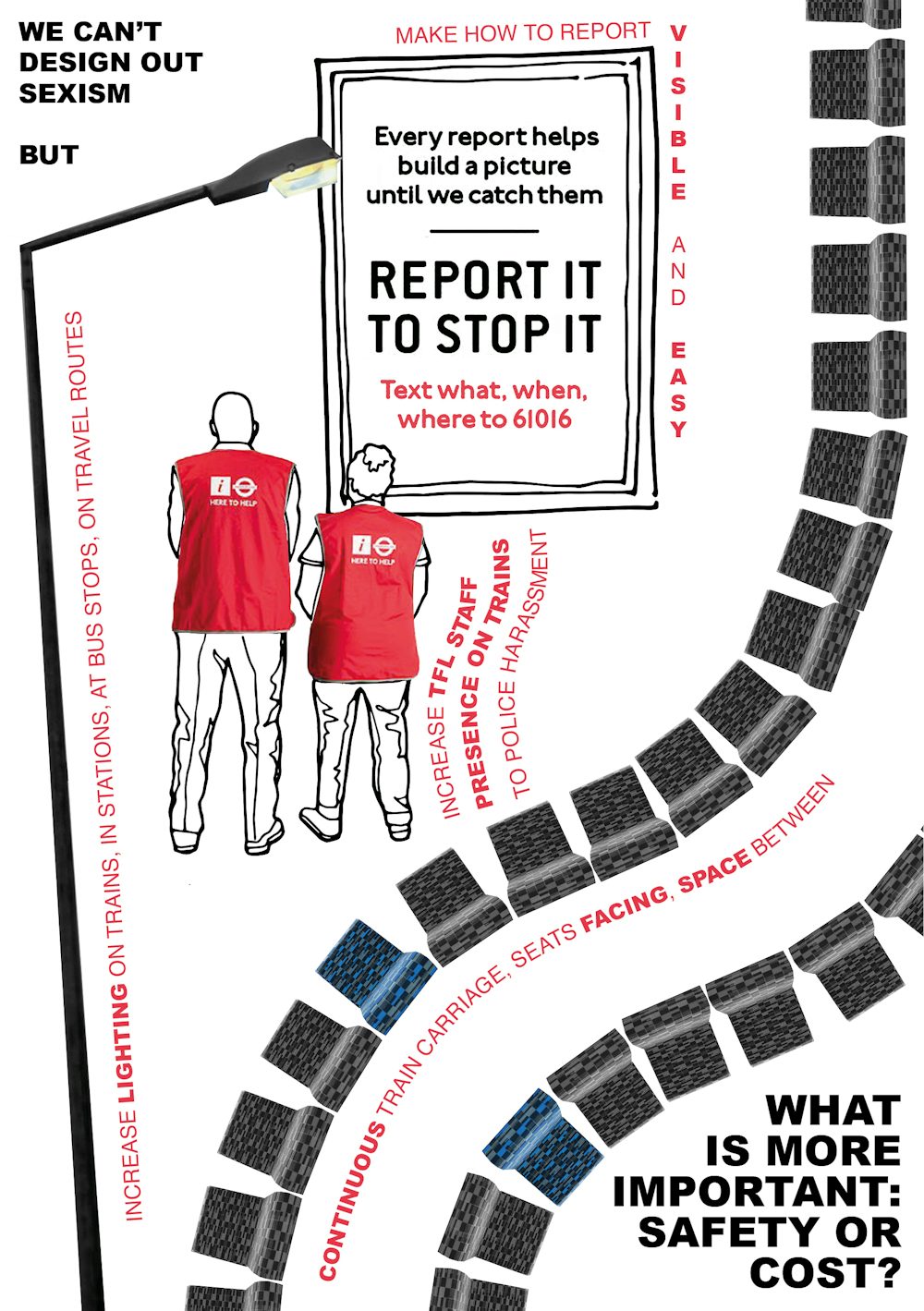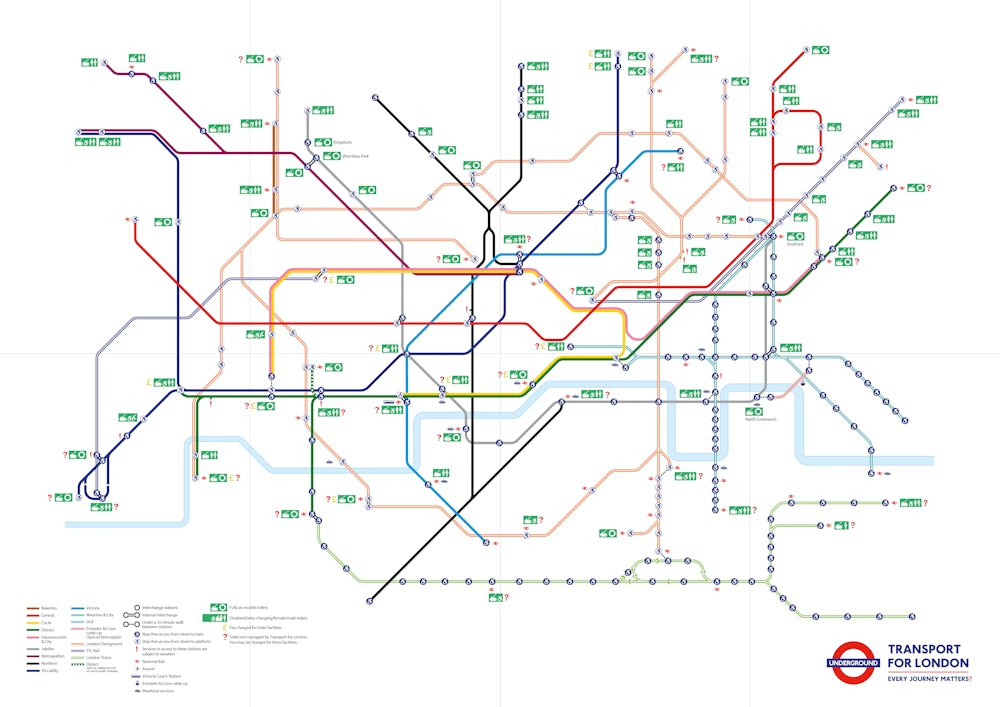Anna Russell
"Every journey matters?"
Keywords: borders/boundaries, feminist methodologies, moving image, publishing
This project engages with and illustrates the boundaries and barriers that women face on London’s public transport. Most urban public transport is designed to accommodate the commute of a standard 9-5 worker (Kern, 2020:28), typically taking male travel patterns as the norm (Criado Perez, 2019:33). Often a radial transport system means that the majority of routes lead to the centre: to work (Kern, 2020:28). This ignores the fact that women, who do 75% of the world’s unpaid care work (ibid:30) have ‘atypical’ travel patterns, with detours and multiple stops - often taking children to school on the way to work or picking up groceries on the way back from work. This means that the transport system is not designed to cater for the more complicated travel patterns of women, therefore, posing a barrier to women’s movement around the city.
The barriers women face on public transport do not stop here. Women typically pay a ‘pink tax’ on transport - paying more than men for similar services (Kern, 2020:29). In London only 50 of the 270 tube stations are fully accessible - a barrier to disabled users, and mothers (and fathers) with prams and small children (Ibid). 55% of women in London have been ‘subjected to unwanted sexual behaviour on public transport’ (Lydall, 2020). As Caroline Criado Perez (2019:52) states ‘women’s risk of being sexually assaulted is a clear violation of women’s equal right to public spaces’. Despite advertising the benefits that some people encounter on a typical day, historical TFL posters fail to address or even consider some of the real issues that women, disabled people and elderly face on public transport.
In response, I have designed a zine, which acts as both a counter-poster and a collection of personal and researched narratives. Historically, zines have been used by third wave and intersectional feminists ‘to offer idiosyncratic, yet savvy and complex responses to the late-twentieth-century incarnations of sexism, racism, and homophobia’ (Piepmeier, 2009). Zine’s made by intersectional feminists offer a critique to the flattening of ethnicity, race and gender which is typical of mainstream discourses. Instead they highlight the complex and interlocking identities of women and how these identities are constantly affecting one another - they cannot be seen in isolation.
Through an intersectional approach, this zine compiles people’s different experiences on public transport, making visible - through a series of alternative maps - the often invisible and complex travel networks of women, disabled people and elderly. By compiling TFL’s poster archives; books, articles and documentaries which highlight women’s experience on public transport; government and police reports; my own observations whilst travelling and personal stories, the zine protests and questions historic and contemporary attitudes to people’s movement around the city. Is public transport really safe and accessible for everyone? Has London’s transport network been designed so that every journey matters?
